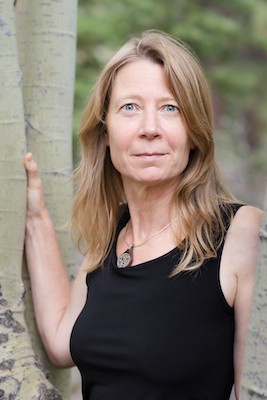
Rochelle L. Johnson
Contest - Flash Creative Nonfiction
Rochelle L. Johnson writes about living with disability in a broken world. A professor of environmental studies, her scholarly essays appear in various journals and anthologies, and her creative essays appear in the Center for Biological Diversity’s The Revelator, in Dawn Songs: A Birdwatcher’s Field Guide to the Poetics of Migration (eds. by Jamie Reaser and J. Drew Lanham), and in her regular columns as president of the Thoreau Society. She is completing a memoir about recovering from amputation through her efforts to recover the life of an early female naturalist. Her pleasures include birding and gardening, walking and running, and cradling grief amid a passionate pursuit of resilience. Find more at: rochelleljohnson.com.
Where Ashes Bloom
I moved west when I was barely an adult and no longer whole. I left behind a limb in an east-coast surgical ward, saying goodbye to a body part and to my own completeness. Amputation forces a farewell.
As I entered southwest Idaho, the evening air hung thick with alfalfa’s scent. Other fields grew mustard and mint—more peppery bitterness. Outside the fields and away from the river, trees and meadows were scarce. Sagebrush and prickly creosote whispered in place of flashing maple and crisp birch. This arid land hardly held the promise of home.
I adjusted to life without my left leg. Sometimes I pictured its remains—flesh incinerated to coarse sand and gray ash, tiny chunks of desiccated bone, the refuse of a heat stronger than desert sun on pale skin.
When my father visited, he gazed out the car window, quiet at the barren land. Later he spoke softly: “I guess it’s just a different sort of beauty.” Those words stayed. In time I learned to see flaming-orange globe mallow rising from tawny ground and Indian paintbrush bursting crimson under tenacious sage. Balsamroot glowed yellow like blooming buckets of sunshine on rocky hillsides.
Now, these many years later, the lack of trees still gapes. So does the space where my leg once grew. But in this place where desolation masks fecundity, these absences have become home. Here, emptiness is just another sort of beauty, and wholeness can follow even final farewells.
“ This piece explores how landscapes can ground us, reminding us that our bodies may be broken and are certainly transitory but, in their temporary fragility, they also are part of a much greater wholenesss. ”
